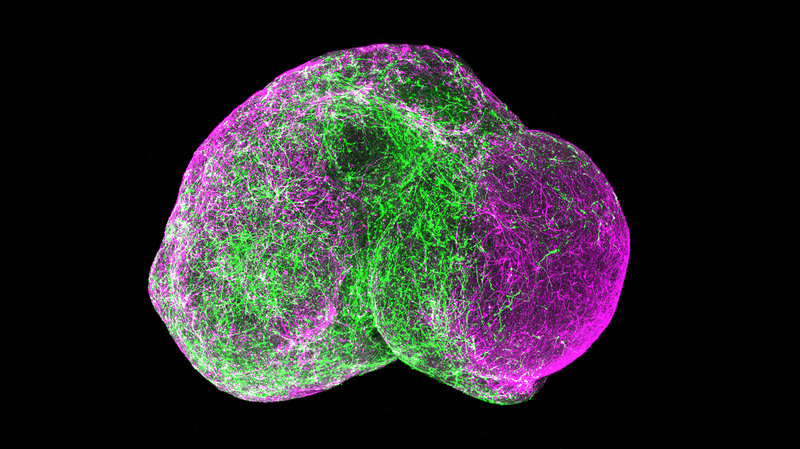Tiny Lab-Grown 'Brains' Raise Big Ethical Questions
Scientists placed two clusters of cultured forebrain cells side by side (each cluster the size of a head of a pin) in the lab. Within days, the minibrains had fused and particular neurons (in green) migrated from the left side to the right side, as groups of cells do in a real brain.

Bits of human brain tissue no larger than a pea are forcing scientists to think about questions as large as the nature of consciousness.
These clusters of living brain cells are popularly known as minibrains, though scientists prefer to call them cerebral organoids. At the moment, they remain extremely rudimentary versions of an actual human brain and are used primarily to study brain development and disorders like autism.
But minibrain research is progressing so quickly that scientists need to start thinking about the potential implications now, says Nita Farahany, a professor of law and philosophy at Duke University and the director of Duke Science and Society.
"Is it possible that an organoid far off in the future could develop something that looks like consciousness or any kind of sentience, the ability to feel something like pain," she says.
Farahaney and 16 other prominent scientists, ethicists and philosophers posed this question and many others in a commentary in this week's issue of the journal Nature.
Minibrains are usually created by transforming skin cells from a person into neural stem cells. These stem cells can grow into a range of structures like those found in the human brain, and even form networks of cells that communicate.
At the moment these lab-grown minibrains are limited to a few million cells and don't get much larger than a pea. In contrast, the human brain is thousands of times larger and contains about 85 billion cells.
"Right now they're pretty good proxies for being able to study how certain kinds of human neurons interact with each other and grow and develop over time," Farahany says. "But they are still far from what an actual human brain would look like."